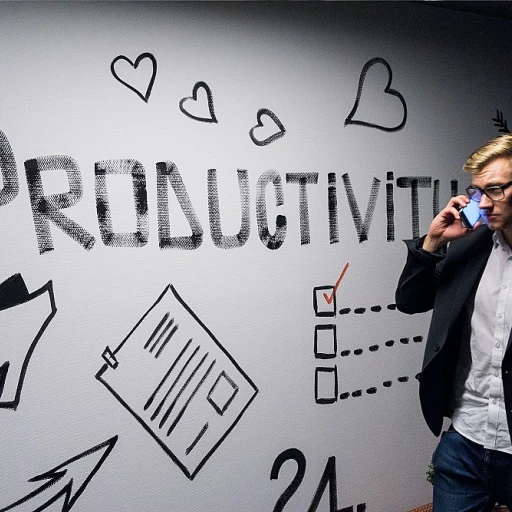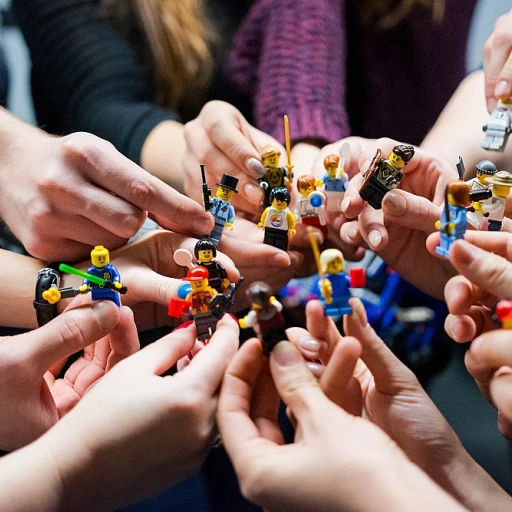Understanding the Interview Process
Gaining Clarity on the Interview Journey
In the realm of recruitment, the interview process stands as a crucial component. It's much more than just a simple interaction; it's a dynamic exchange where mutual assessments occur, and essential insights come to light. To optimize this journey, it’s vital to first understand its intricacies and what each stage entails.
The initial stages often involve narrowing down the pool of candidates from a myriad of applications. Here, the objective is to find resumes that align well with the job requirements, but there’s more to consider beyond just matching qualifications. The selection also relies heavily on determining whether a candidate fits the company's culture and values.
Once applications are shortlisted, the focus shifts to personal interactions. This marks the candidate's first in-depth exposure to the company and its representatives, setting the tone for their potential relationship with the organization. Each interviewer plays a pivotal role in promoting the company's image, making it imperative that they are well-versed with the company's ethos and expectations.
An often-overlooked aspect is the importance of consistency across interviews. When interview panels deliver varied experiences or information, it creates confusion and may damage the company’s reputation in the long term. Maintaining uniformity in questioning and evaluation standards not only aids in fair assessment but also enhances the reliability of the hiring decision process.
Throughout the interview process, feedback loops should not be ignored. They provide companies invaluable insights into what might need refinement in the stages of candidate evaluation and engagement. These reviews can significantly enhance the effectiveness of future interviews, creating a more refined and positive candidate experience.
In upcoming segments, we will explore how preparation and efficient scheduling can contribute to an enhanced candidate experience, and the importance of timely and constructive feedback within the hiring framework.
Interview Preparation: Setting Candidates Up for Success
Empowering Candidates Through Preparation
Entering an interview unprepared can feel like trying to navigate through a maze without a map. For hiring managers aiming to improve the job interview landscape, ensuring candidates arrive armed with the necessary tools and information is paramount. This preparation sets them up for success and fosters a more productive dialogue during the interview process.
Preparation begins before candidates even step foot through the door or connect online for a video interview. Communication is key—sharing comprehensive details about the role, company expectations, and the interview timeline helps candidates align their skills with what the company is seeking. This transparency creates a foundation upon which candidates can build their applications and tailor their interview responses accordingly.
Another aspect to consider in empowering candidates is offering resources for interview preparation. This could include providing insights into the company culture, a breakdown of the interview structure, or even sample interview questions to help candidates better anticipate the types of discussions they may encounter. By demystifying the process, we help candidates feel more confident and focused, thus leading to more effective interviews.
Moreover, when candidates are given a fair chance to prepare, they are more likely to perform well, which in turn reflects positively on the employer's branding. This preparation not only enhances the candidate's experience but also provides organizations with a more genuine assessment of each candidate's potential, as explored further in understanding the entire interview process and its workflow.
In summary, by investing in a robust preparation plan for candidates, companies not only optimize the interview experience but also position both the candidates and themselves for mutual success.
Streamlining Interview Scheduling
Efficiently Coordinating Interview Dates
Effective interview scheduling is a crucial element in enhancing the overall interview experience for both employers and candidates. A well-coordinated process respects the time and availability of all parties involved, minimizing unnecessary stress and confusion. In this section, we will explore strategies to streamline the scheduling process.
Modern technology offers a wealth of tools designed to simplify and automate interview scheduling. Utilizing digital tools such as scheduling apps and integrated email calendars can significantly reduce the time spent on back-and-forth communications between recruiters and candidates. These tools allow candidates to choose their preferred interview slots from available options, providing flexibility and convenience.
Be sure to maintain clear communication with candidates throughout the scheduling process. This transparency helps set the tone for a positive interview experience, reinforcing the sense of respect and consideration first highlighted in interview preparation. It's also beneficial to promptly respond to any scheduling conflicts or changes to demonstrate flexibility and understanding.
Interview scheduling is not merely about picking a date; it’s about creating a seamless process that respects everyone’s time. By adopting effective scheduling tactics, companies can ensure that they present themselves as well-organized and considerate, ultimately fostering a positive experience for candidates. For additional guidance on navigating the interview process, a detailed resource is available here:
navigate the interview process.
The Role of Feedback in the Hiring Process
The impact of thoughtful feedback in hiring
In the realm of candidate selection, feedback holds significant sway. It is the unseen force that effectively bridges the gap between initial curiosity and ultimate decision. The power of feedback lies in its ability to facilitate growth, refine processes, and build connections. Understanding this role can vastly improve a company’s hiring experience, fostering an environment where both candidates and employers benefit.
### Closing the loop with candidates
Providing feedback isn’t merely good etiquette; it’s a crucial element of the candidate experience. Candidates invest significant time and energy into interview processes, and receiving constructive feedback can be both illuminating and empowering. It allows candidates to understand their strengths and areas needing improvement, potentially aiding them in future job searches. Moreover, clear and respectful feedback reinforces a positive image of the company, irrespective of the hiring outcome.
### Enhancing internal processes
For employers, feedback serves as a valuable tool to refine the interview process. After interviews, recruiters can gather insights from both interviewers and interviewees to assess what is working well and what challenges might be present. For instance, if multiple candidates are unclear about the expectations of a particular role, this may indicate the need to improve job descriptions or interview questions. Ongoing feedback enables iterative development of the interview process, ultimately making it more effective and streamlined.
### Fostering transparency and trust
Feedback also plays a pivotal role in fostering transparency and building trust between candidates and companies. When candidates are kept informed about the decisions and reasoning behind them, it nurtures a sense of fairness and respect. This transparency can significantly enhance the overall candidate experience, positively impacting an organization’s reputation in the job market.
Understanding the importance and role of feedback not only benefits the candidates but also enhances the hiring process. By embedding thoughtful feedback into the interview journey, companies can create a more robust and appealing candidate experience.
Video Interviews: Pros and Cons
Exploring the Advantages and Challenges of Virtual Interviews
In today's fast-paced, tech-driven world, video interviews have become a staple in the hiring process. They offer a unique blend of convenience and efficiency, allowing employers to connect with candidates across the globe without the constraints of travel or time zones. However, like any tool, video interviews come with their own set of pros and cons that both employers and candidates should consider.
On the positive side, video interviews can significantly reduce the time and costs associated with traditional in-person interviews. This aligns with our earlier discussion on streamlining interview scheduling, as video interviews offer flexibility in timing, making it easier to coordinate across different schedules. Additionally, they provide an opportunity for employers to assess a candidate's technical proficiency and adaptability to digital communication platforms—skills increasingly important in many job roles today.
However, video interviews are not without their challenges. Technical issues such as poor internet connectivity or software glitches can disrupt the flow of conversation, potentially impacting the candidate's performance and the interviewer's perception. Moreover, the lack of physical presence can sometimes hinder the ability to read body language and build rapport, which are crucial components of the interview process.
To mitigate these challenges, it's essential for both parties to prepare adequately. As discussed in our section on interview preparation, ensuring a stable internet connection, testing the video platform beforehand, and choosing a quiet, professional setting can help create a smoother experience. Employers should also consider providing clear instructions and support to candidates who may be less familiar with video technology.
Ultimately, while video interviews offer numerous benefits, they require thoughtful implementation to ensure they enhance rather than hinder the hiring experience. By understanding their strengths and limitations, organizations can better integrate video interviews into their hiring strategy, contributing to a more positive candidate experience overall.
Creating a Positive Candidate Experience
Crafting an Outstanding Journey for Candidates
The way candidates perceive their interview experience can significantly impact a company's reputation and its ability to attract top talent. Thus, creating a positive candidate experience should be at the forefront of the hiring process.
Firstly, clear and timely communication is key. Candidates appreciate knowing what to expect ahead in the interview process, which aligns with the interview preparation strategies you establish for setting them up for success. Sending out comprehensive information about the interview stages, panel members, and company culture can alleviate anxiety, allowing candidates to perform at their best.
Moreover, personalization can make candidates feel valued. Consider tailoring your interaction according to each individual's background, as much as possible. Express genuine interest in their professional journey and aspirations. This not only shows respect but could also unveil attributes that might align well with your organization.
Equally important is the conduct of interviewers during the session. Engage in active listening and encourage open dialogue, fostering an environment where candidates feel comfortable sharing their thoughts. Furthermore, ensuring a respectful and unbiased environment echoes the core of understanding the interview process more deeply.
Another pivotal factor is feedback. Providing constructive feedback post-interview helps candidates understand their strengths and areas for improvement. This feedback loop positions your organization as one that values growth and transparency, reflecting positively on your employer brand.
Remember, today’s candidate experience could determine tomorrow’s public perception of your brand. By ensuring a seamless interaction from preparation, scheduling, and through to feedback, you create a narrative that positions your company as a desirable place to work. Embrace these practices, and you will craft an interview process that leaves a lasting positive impression.






